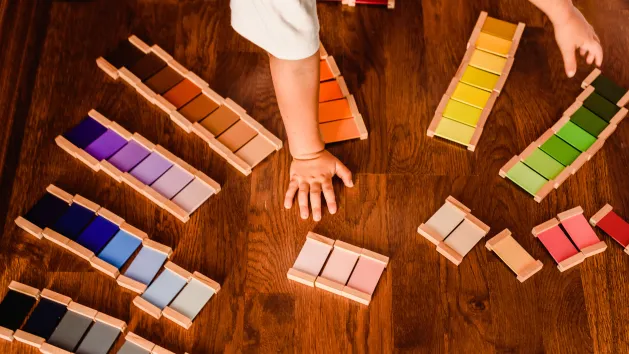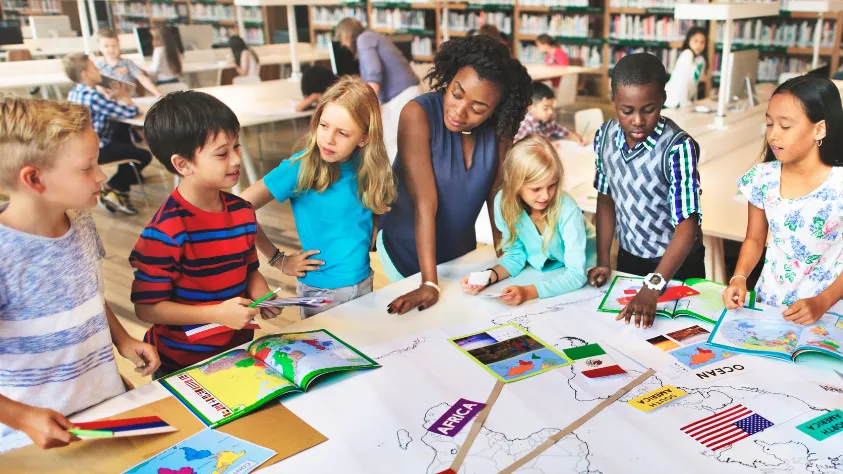
Understanding positive education

What is positive education?
Positive education is not a passing fad, but a real educational paradigm. It’s an approach that places the child and his or her needs at the heart of the educational process. Instead of focusing on failures and punishments, positive education values successes and encourages an atmosphere of well-being and empathy.
Positive education draws many of its principles from positive psychology, a branch of psychology that took off in the 1990s thanks to researchers such as Martin Seligman. This approach focuses on strengths and potential, with the aim of creating an educational environment that enables children to flourish emotionally, socially and intellectually.
Positive education can be integrated into all aspects of a child’s life. It aims to develop essential skills such as resilience, gratitude and self-regulation, while supporting their overall well-being. It’s not just about making them “academically competent”, but preparing them to become balanced, happy individuals.
Positive education emphasizes the relationship between the educator (be it the parents, the teacher, or anyone else involved in the child’s education) and the child him/herself. Open communication, clear expectations and mutual respect are the cornerstones of this relationship. The aim is not to control the child, but to guide and accompany him on his own journey of discovery and growth. 🌱
The benefits of positive education
Positive education can have a considerable impact on a child’s emotional balance and well-being.
Imagine your home or classroom as a greenhouse where each plant has its own needs. By practicing positive education, you create an environment where all plants can flourish.
4 recognized benefits of positive education :
- Boosts self-esteem
- Improves family and social relationships
- Promotes a healthy learning environment
- Develops resilience and the ability to face challenges
Valuing failure
Failure is not taboo in positive education – quite the contrary! Valuing failure means teaching children that every obstacle is an opportunity to learn and improve. This perspective transforms challenges into opportunities, not threats to self-esteem. This appreciation of failure instills in children a genuine culture of resilience.
Children learn to see each failure as a step on the road to success. They become more capable of questioning themselves, adjusting and persevering, rather than becoming discouraged. By giving them the freedom to make mistakes, we also give them the freedom to experiment, which is essential for their intellectual and emotional development.
De-dramatizing failure also gives the child the tools to manage the pressure and stress that may accompany future challenges. As a result, they’ll be better equipped to face school exams, interpersonal relationships or even future professional challenges.
How to integrate positive education at home and at school?
- Active listening: be attentive to your child’s needs and concerns. Don’t judge.
- Positive reinforcement: reward good deeds rather than punish bad ones.
- Sense of autonomy: encourage the child to make decisions and take responsibility.
- Empathetic communication: use language that encourages openness and mutual understanding.
- Flexibility and adaptation: Be ready to adjust your methods according to each child’s needs.
💡 Baba’Tip:
To better practice active listening and empathic communication, set aside specific times to spend with the child. It doesn’t have to take hours! Taking a few minutes at breakfast, or in the evening when you get home from work, to discuss the day’s program or debrief, is already very good. During these moments, put distractions aside and concentrate fully on your interaction.
Why does this concern everyone?
Children are social beings who interact not only with their parents and teachers, but also with other family members, friends, sports coaches or even local shopkeepers. All these interactions have an impact on their development.
Positive parenting doesn’t just benefit children. It fosters open communication, mutual respect and empathy, qualities that are just as important in adult relationships. Who wouldn’t want an environment where positivity and emotional support reign? Adopting positive parenting principles in a community can have a snowball effect. In fact, many people are already adopting positive parenting without even realizing it!
Positive parenting isn’t always easy
Even with the best will in the world, things can still go wrong! We’ve all scolded a child harder than we wanted to… So, if you’re committed to positive parenting for the children around you, be gentle with yourself. We know you’re already doing your best.
Babaoo recap!
In a nutshell, positive parenting is an approach that focuses on a child’s well-being and development. It brings many benefits in terms of personal development, from improved self-esteem to resilience. Valuing failure and integrating positive methodologies at home and at school are key steps. And don’t forget: this applies to everyone!
You may also be interested in these articles


